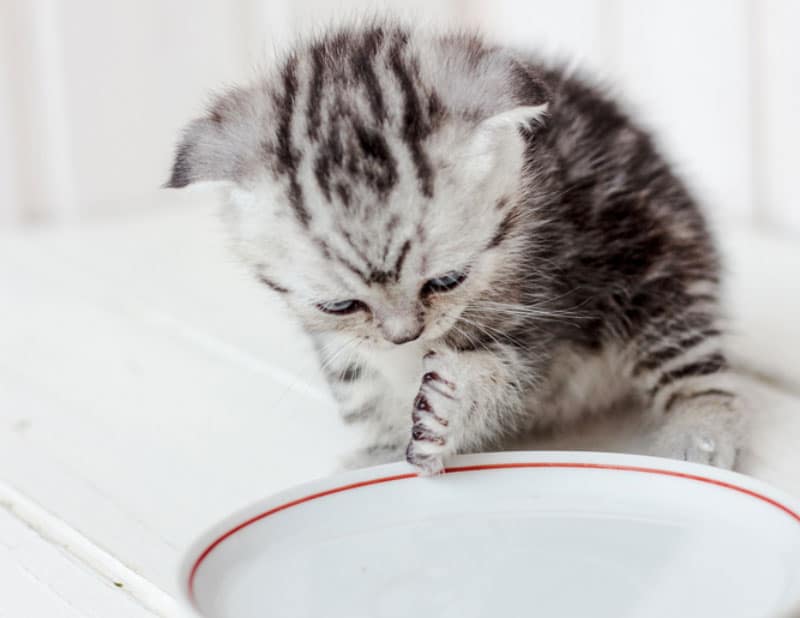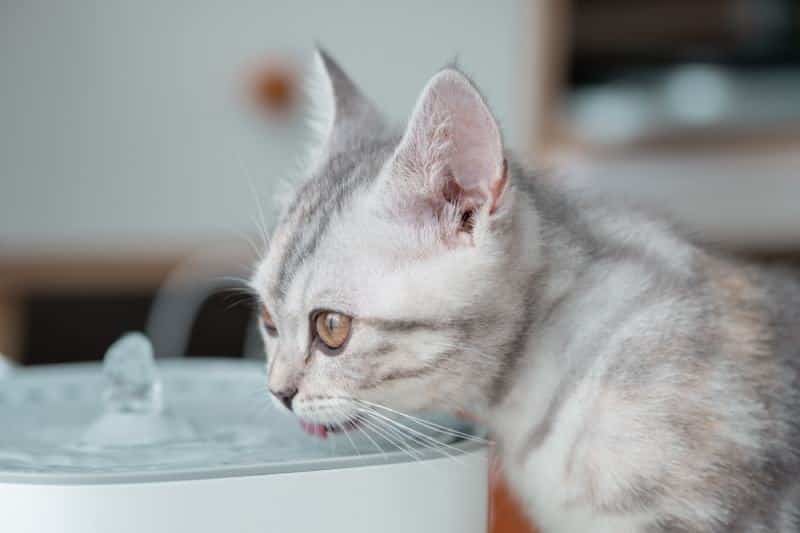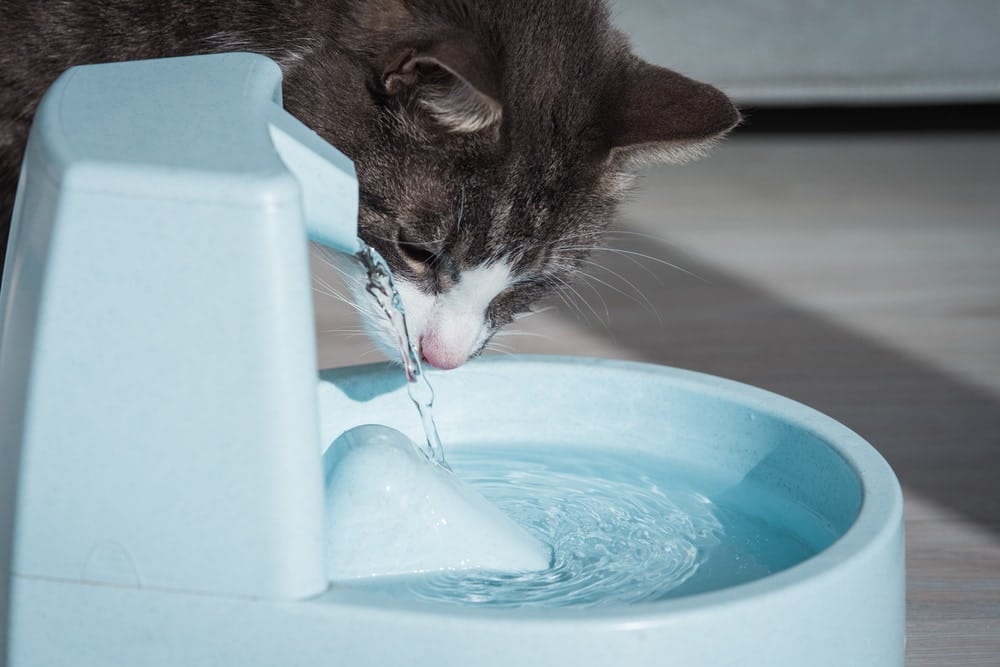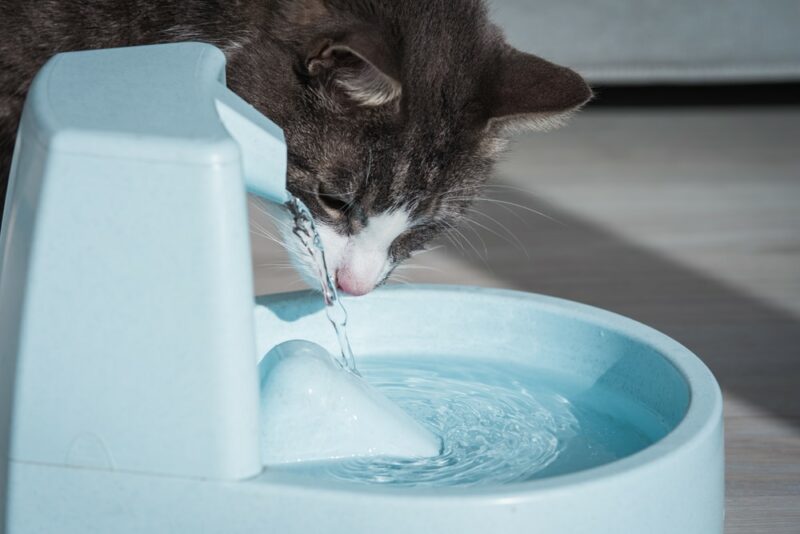Summers can be brutal, so staying hydrated is more important than ever. But while we can easily drink more water when it’s hot, our pets rely on us to ensure they’re getting enough to drink on these hot days. That’s why National Pet Hydration Awareness Month exists!
What is National Pet Hydration Awareness Month 1? It’s exactly what the name suggests—a month to increase awareness about how vital it is to keep our pets hydrated. When is National Pet Hydration Awareness Month? This event is observed every July. What else should you know about this month? Keep reading to find out!
Click to skip ahead:
- National Pet Hydration Awareness Month History
- Signs of Dehydration in Pets
- Water Necessities in Pets
- Ways to Observe National Pet Hydration Awareness Month
- Tips to Keep Your Pet Better Hydrated

National Pet Hydration Awareness Month History
A human’s body consists of 55–60% water, while our furry friends’ bodies are made up of 60–70% water. Not getting enough water can lead to dehydration, which isn’t healthy for our pets (and can be fatal in some cases).
And considering felines in particular aren’t always that big on drinking water, especially if it’s unmoving water, then it’s all too easy for them to become dehydrated.
The ease with which our pets can become dehydrated if we aren’t careful is why PetSafe originated National Pet Hydration Awareness Month in 2018. PetSafe was aware that sometimes pet owners don’t think about their pets’ hydration needs or that our pets’ bodies are made up of more water than our own. After all, many pet owners assume their pets will drink something if they’re thirsty. However, this isn’t always the case (again, see felines). So, they created this month to counteract that lack of knowledge by raising awareness about the importance of hydration in pets and limiting pets’ exposure to extreme temperatures.

What Are the Signs of Dehydration in Pets?
How can you tell if your pet is dehydrated? If your pet isn’t drinking enough water, you’ll see the following signs 2:
- Drinking less
- Eating less
- Lack of energy
- Panting
- Skin is less elastic
- Gums that are sticky and dry
- Sunken eyes
Your pet may have some or all of these signs if they’re dehydrated, and there are a couple of ways you can assess how hydrated your pet is.
The first method is to check their gums. In a well-hydrated pet, the gums will be moist and shiny; however, in an animal that is dehydrated, the gums will be sticky and dry.
The second method of testing your pet’s hydration is the “skin turgor test”. This method simply involves pinching (gently!) a bit of the skin between the shoulder blades and lifting it away from the body. If your pet is hydrated, the skin will fall back into place when you release it. But if your pet isn’t hydrated, the skin will stay in the position you pulled it to.
How Much Water Does My Pet Need?
Pets are individuals, so talking with your vet about your pet’s hydration needs is a good idea. Plus, many factors can affect the amount of water your pet should be drinking, like the type of food they eat (wet or dry), their age, and how active they are. But, in general, you should aim for 1 ounce of water for each pound your pet weighs.

Ways to Observe National Pet Hydration Awareness Month
- Create a hydration strategy for your pet. This involves incorporating more water into your pet’s diet and keeping them safe from extreme temperatures.
- Check your pet for dehydration occasionally. Even if you don’t see any of the obvious signs of dehydration, check your pet’s gums or their skin every once in a while.
- Learn more about pet dehydration and the effects it can have on your pet’s body.
- Educate others in your life or online.
Way to Keep Your Pet Better Hydrated
If you aren’t sure how to get your pet to drink more water, here are a few ways to help them stay hydrated.
- Put out more water. Instead of having a single water bowl, place several bowls in different areas of your home with fresh water.
- Make sure each pet in your home has their own water bowl to avoid animals competing for water.
- If you have cats, try out water fountains and other moving water bowls, as felines are more likely to drink water if it’s moving.
- Add wet food to your pet’s diet.
- Place water bowls where they are easily accessible, especially if you have pets with limited mobility.
- If you have cats, ask your vet about hydration supplements.
- Set alarms on your phone to remind yourself to replace old water with fresh water.

Final Thoughts
It’s incredibly easy for our pets to become dehydrated, especially if they’re cats, and National Pet Hydration Awareness Month aims to help increase awareness about this. When the weather is crazy hot, keep an eye on any animals in your home for any signs of dehydration. Try to counteract dehydration by ensuring there is plenty of water to be found in your home.
If you want to observe National Pet Hydration Awareness Month, you can create a hydration strategy for your pet with the tips above. Other excellent ways to observe this month are learning more about pet dehydration and hydration, as well as educating others in your life!
Featured Image Credit: Creative Cat Studio, Shutterstock






